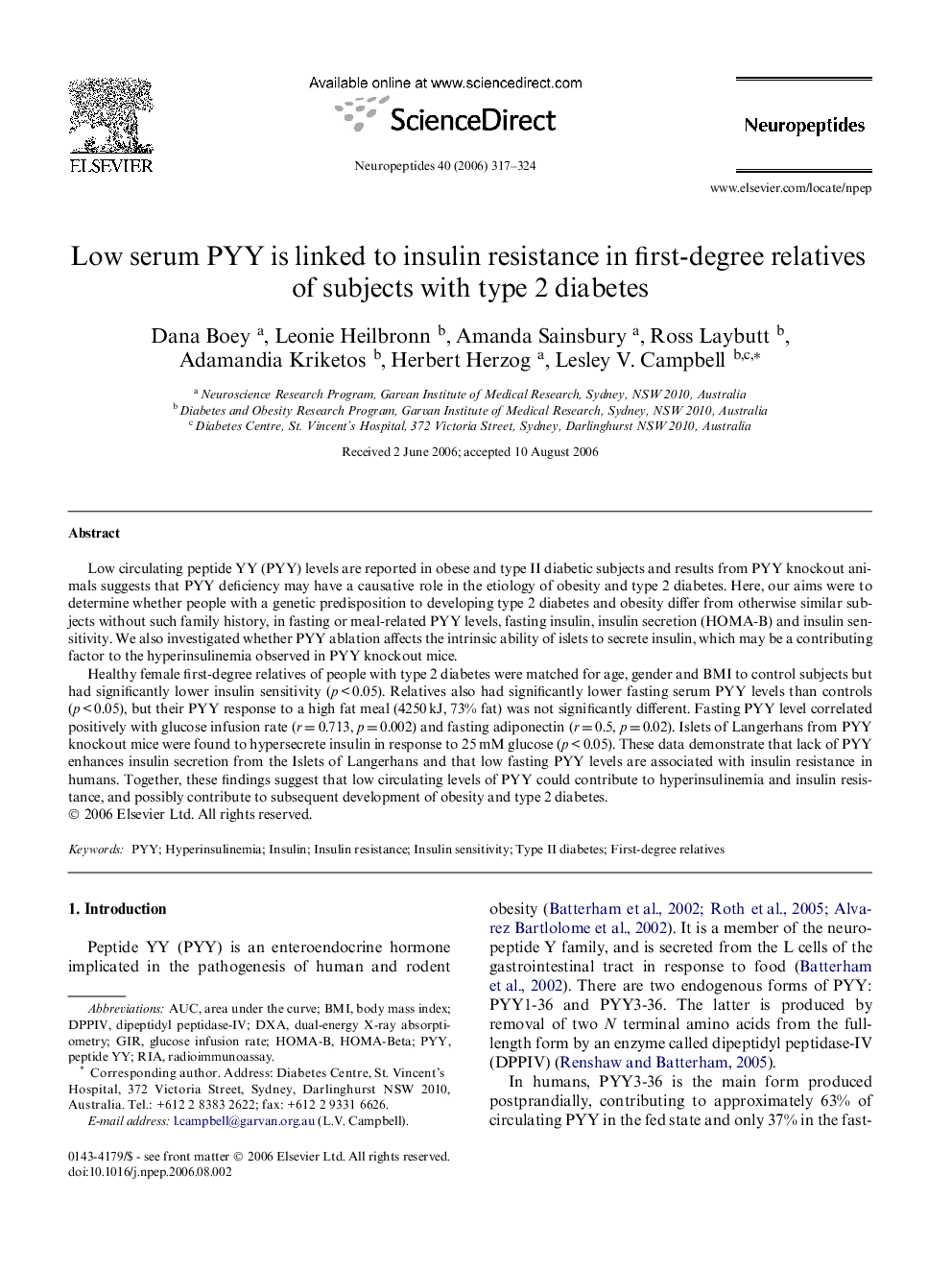| Article ID | Journal | Published Year | Pages | File Type |
|---|---|---|---|---|
| 2808699 | Neuropeptides | 2006 | 8 Pages |
Low circulating peptide YY (PYY) levels are reported in obese and type II diabetic subjects and results from PYY knockout animals suggests that PYY deficiency may have a causative role in the etiology of obesity and type 2 diabetes. Here, our aims were to determine whether people with a genetic predisposition to developing type 2 diabetes and obesity differ from otherwise similar subjects without such family history, in fasting or meal-related PYY levels, fasting insulin, insulin secretion (HOMA-B) and insulin sensitivity. We also investigated whether PYY ablation affects the intrinsic ability of islets to secrete insulin, which may be a contributing factor to the hyperinsulinemia observed in PYY knockout mice.Healthy female first-degree relatives of people with type 2 diabetes were matched for age, gender and BMI to control subjects but had significantly lower insulin sensitivity (p < 0.05). Relatives also had significantly lower fasting serum PYY levels than controls (p < 0.05), but their PYY response to a high fat meal (4250 kJ, 73% fat) was not significantly different. Fasting PYY level correlated positively with glucose infusion rate (r = 0.713, p = 0.002) and fasting adiponectin (r = 0.5, p = 0.02). Islets of Langerhans from PYY knockout mice were found to hypersecrete insulin in response to 25 mM glucose (p < 0.05). These data demonstrate that lack of PYY enhances insulin secretion from the Islets of Langerhans and that low fasting PYY levels are associated with insulin resistance in humans. Together, these findings suggest that low circulating levels of PYY could contribute to hyperinsulinemia and insulin resistance, and possibly contribute to subsequent development of obesity and type 2 diabetes.
